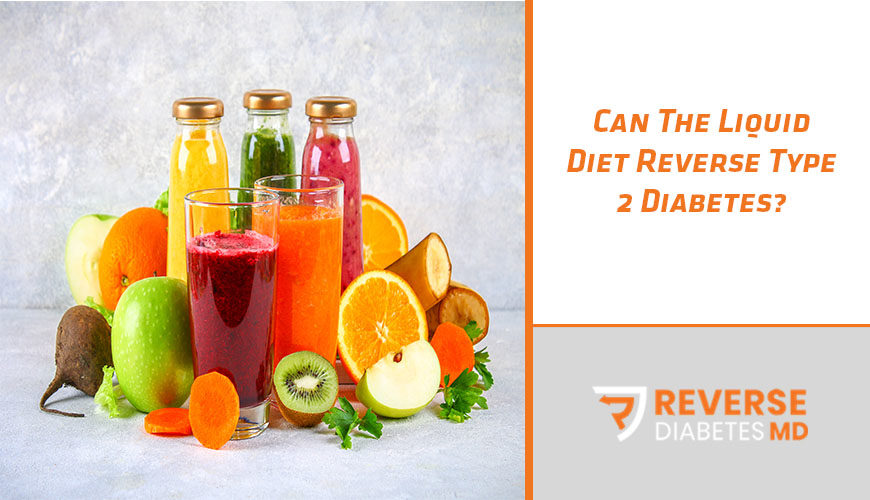Diabetes was the leading cause of death in the US in 2015. To date, it follows closely behind cardiovascular disease and cancer.
For many people, the diagnosis of type 2 diabetes can be devastating as this comes with lots of risks and uncertainties. Also, this implies having to grapple with increasing healthcare costs to manage the chronic condition. The cost of treating diabetes in the US is approximately $7,900 per person each year.
Just across in the UK, the National Health Service (NHS) is looking for ways to curb the diabetes type 2 epidemic which is causing a strain on the already overstretched NHS budget. Towards the end of last year, the NHS initiated a program that involves starting 5,000 patients on a liquid diet of just over 800 calories a day for 120 days in a bid to reverse the condition. This is part of the NHS Diabetes Prevention Programme (NHS DPP) intended for people who are at risk of type 2 diabetes The project comes after a highly successful trial of the same nature. This liquid diet is meant to restrict the calorie intake of the patients with the hope of helping them achieve a healthy weight and healthy lifestyle. In the end, these lifestyle changes should lead to diabetes reversal.
What is diabetes type 2?
Diabetes is a condition that causes an individual’s blood sugar levels to become too high. Type 2 diabetes happens when a person progressively becomes insensitive to the effects of insulin. The pancreas then secretes more insulin leading to too much insulin in the body. Eventually, the insulin levels may decline when the production sources are exhausted.
Diabetes type 2 is linked to obesity and cancer. Fortunately, it is preventable through diet and lifestyle changes.
In the US, there are about 100 million people living with diabetes or prediabetes. 9 out of 10 of diabetes cases have diabetes type 2. The study alluded to above suggested that a liquid diet could help in reversing diabetes in most patients.
What Is A Liquid Diet?
A liquid diet (like the one used in the study) is generally a very low-calorie diet. It usually involves eating around 800 calories a day or less. Just to put this in perspective: this is a third of what a man usually takes and half of what a woman should take.
The liquid diet consists of shakes and soups, according to the NHS. A person should use this diet for no more than 12 weeks and should do this only under strict medical supervision.
Side effects to expect include:
- Dry mouth
- Constipation
- Diarrhea
- Headaches
- Dizziness
- Cramps
- Hair thinning
This diet is not suitable for everyone.
Top of Form
Bottom of Form
Top of Form
Bottom of Form
Successful trial
The milestone study is called DiRECT which is an acronym for Diabetes Remission Clinical Trial/ As much as the study is not complete, preliminary findings have caused lots of excitement. So much so that NHS England has committed to piloting a Type 2 diabetes remission programme in 2019 with about 5,000 study participants.
The first-year results showed that almost half (45.6%) of those who took part in the programme were in remission after a year. By the end of the second year, 70% were still in remission. Overall 30% of study participants were still in remission two years. This is encouraging for the diabetic community as it dispels that myth that this is an irreversible disease.
The second-year results showed a close correlation between diabetes type 2 remissions and weight loss. The majority of those who lost more than 10 kilos maintained remission after two years. Weight loss was also associated with improved quality of life, improved blood glucose (sugar) control, and a reduced need for diabetes medications.
The researchers admitted that this approach cannot work for everyone. It is important to understand the biology underlying remission before implementing any treatment.
What Is Diabetes Remission?
Diabetes remission means that a person with diagnosed diabetes can maintain normal blood glucose levels without using any medication. This doesn’t mean diabetes has gone for good, but that the person is living symptom-free and medication-free as well. A person in remission still needs regular check-up and follow up by a physician.
What Is The NHS Plan
The NHS long-term plan is to empower people living with type 2 diabetes to take charge of their own health needs. By limiting their calorie intake and reducing weight, most patients can achieve diabetes reversal.
Ultimately, this will result in lower healthcare costs for the NHS as well as individual patients. Speaking to news, NHS England chief executive Simon Stevens had this to say:
“However this isn’t a battle that the NHS can win on its own. The NHS pound will go further if the food industry also takes action to cut junk calories and added sugar and salt from processed food, TV suppers, and fast food takeaways.”
-
References
- CDC: Death and Costs. Retrieved from https://www.cdc.gov/diabetes/data/statistics-report/deaths-cost.html
- iNews (2019): Type 2 diabetes patients to be prescribed very low-calorie liquid diet to reverse. Retrieved from https://inews.co.uk/news/type-2-diabetes-patients-prescription-very-low-calorie-liquid-diet-reverse-condition-198716
- BBC News (2018): Type 2 diabetes: NHS to offer 800-calorie diet treatment. Retrieved from https://www.bbc.com/news/health-46363869
- Diabetes UK: NHS England announces Type 2 remission pilot, and plans to double the size of the NHS England Diabetes Prevention Programme. Retrieved from https://www.diabetes.org.uk/about_us/news/nhs-type2-remission-pilot






